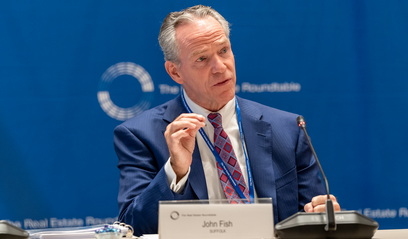
Last week, the White House hosted a virtual briefing for Roundtable members to discuss federal loan and guarantee programs at the federal departments of Energy, Housing, Transportation and the General Services Administration that may assist with financing commercial-to-residential conversion projects.
Property Conversions Briefing
Upcoming Workshops - Federal Resources to Support Commercial-to-Residential Conversions
IRA Tax Incentives – 179D

The Roundtable’s Property Conversions Working Group will continue to serve as a conduit between our members and the administration to help design impactful policies that can assist with office-to-residential conversions. Please contact Roundtable SVPs Duane Desiderio (ddesiderio@rer.org) or Ryan McCormick (rmccormick@rer.org) for more information.
# # #

Although the Biden administration and Congress continue to urge federal agencies to end pandemic-era telework policies, officials acknowledge they have yet to reach their return-to-office objectives, with only about half of cabinet agencies having achieved the goal of workplace return by January. (Axios, Nov. 30)
Congressional and Administration Efforts

Roundtable Advocacy
Roundtable President and CEO Jeffrey DeBoer has repeatedly emphasized that remote working by federal employees is undermining the health of cities, local tax bases, and small businesses.
# # #

A new analysis by Marcus & Millichap demonstrates how like-kind exchanges are fundamental to the health and financing of the commercial real estate industry, particularly during market corrections and liquidity shortages. (Marcus & Millichap - The Importance of Like-Kind Exchanges During Periods of Reduced Commercial Real Estate Market Liquidity, 2023).
Key Findings
The Roundtable’s Tax Policy Advisory Committee (TPAC) will continue working to raise awareness of the role that like-kind exchanges play in supporting the health of the US economy and the stability of real estate markets.
# # #